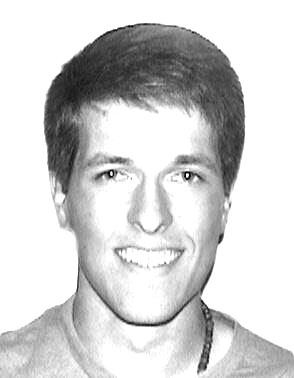Religion would be nothing without the bonds of community. It is the sphere in which we can connect with people who share our beliefs and culture and can safely speak and explore our ideas, doubts and concerns. There is incredible freedom in being able to practice faith with others in the privacy of a sacred space. Faith communities, however, are being undermined and dismantled by networks of mass surveillance. The freedom to practice religion within one’s community is eroding as privacy becomes a thing of the past.
Edward Snowden, the CIA employee who leaked information on massive data collection, is fond of referring to privacy as the “fountainhead of all our rights” and the right “from which all rights are derived.” The First Amendment, for instance, is rendered meaningless without privacy. It is easy to see how this would be the case for freedom of speech, but does this apply to freedom of religion?
Consider the extensive surveillance of Muslims by law enforcement in post-9/11 America. The Associated Press and The New York Times recently reported on the New York Police Department’s use of “mosque crawlers” to record sermons and document members of a congregation, as well as sending plainclothes officers into halal delis to eavesdrop on Muslims, many of whom were not charged with any wrongdoing.
Surveillance of religious and ethnic groups justified in the name of counterterrorism perpetuates the same violence it is intended to stop, thereby terrorizing communities and stripping them of their privacy. How are religious communities meant to practice together if their religious beliefs, and any conversations they have about matters of faith, are potentially incriminating?
The AP report highlighted that “those who attend [a mosque] do so to just pray and leave, looking over their shoulders for eavesdropping spies the entire time.” Surveillance has turned sacred institutions into institutions of fear. Muslims can no longer feel safe praying, knowing someone may be documenting their prayer as if it were a criminal act.
Snowden is right; in order for freedom of religious expression to truly exist and for people to practice their religion without fear of restitution, there must be privacy. Surveillance is nothing new, but the scale at which it now occurs is unprecedented. Snowden recognizes the need for “protected spaces” in which the invasive eye of law enforcement has no right to inspect without proper justification.
Protected spaces such as mosques and churches should be arenas for people to experience ultimate freedom, places where people can connect with one another and to the divine without fear or censorship. Surveillance puts limits on this freedom. Entering a mosque today potentially puts a tracker, not just a target, on your back.
That possibility is enough to degrade the potency and quality of worship.
We must ask ourselves: Who will be the target of surveillance next? Today it is Muslims, but yesterday it was the Italians, Jews, Communists, Black Panthers, etc. If you are not already losing your right to privacy today, you may very well lose it tomorrow. This is why it is so critical for us to resist infringements of privacy regardless of whether they directly affect us or if we have anything to hide. For the sake of our religious freedom, we must be able to pray, doubt, wonder and believe under a strong and upheld right to privacy.
Nicholas Scrimenti is a junior in the College. SPIRITUAL SEARCH appears every other Friday.




















